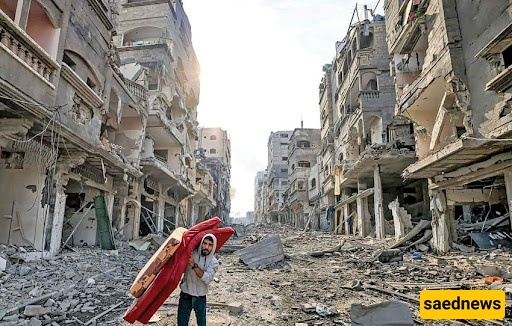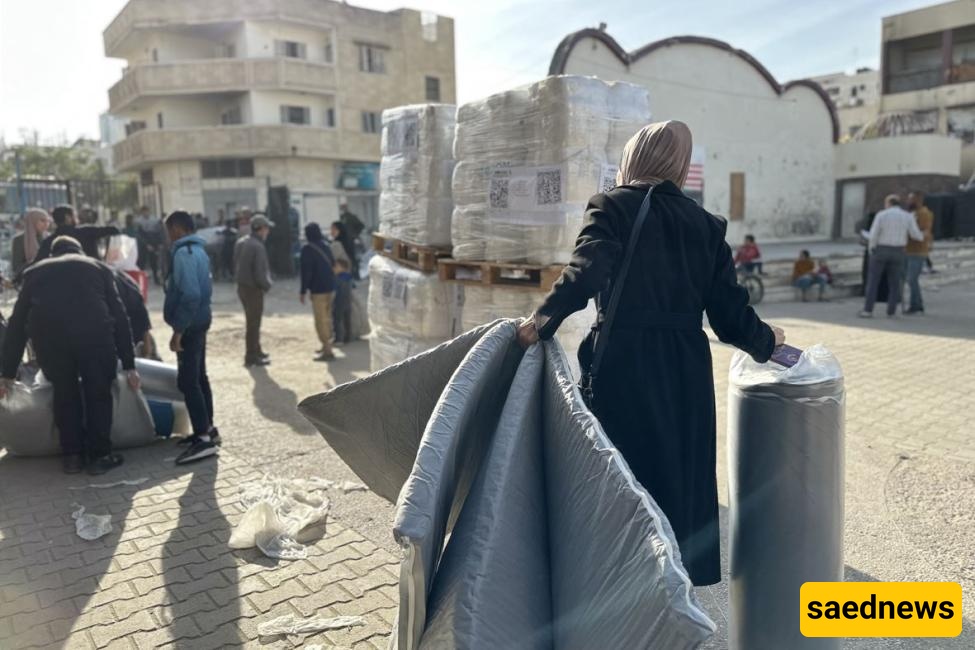SAEDNEWS: As Israeli Prime Minister Benjamin Netanyahu insists on efforts to relocate Palestinians from Gaza, Egyptian officials are seeking to achieve a temporary 60-day ceasefire to prevent the worsening of the humanitarian crisis in the region.

According to Saed News, citing France 24, in recent weeks tensions between Israel and Palestinian groups in the Gaza Strip have escalated sharply, bringing the humanitarian crisis in the area to a critical point. Israeli Prime Minister Benjamin Netanyahu, emphasizing the need to push Palestinians out of densely populated areas of Gaza, has intensified his aggressive policies. He argues that this move is necessary for Israel’s security and could prevent rocket attacks on the country’s southern cities. This stance has been taken despite warnings from the international community and human rights organizations about the humanitarian consequences of such a decision.

In contrast, Egypt, as a traditional mediator in the Israeli-Palestinian conflict, is working through diplomatic negotiations to secure a temporary 60-day ceasefire. This proposal aims to immediately reduce violence, facilitate humanitarian aid, and create an opportunity for longer-term negotiations. Egyptian officials believe that a temporary halt to the fighting could save thousands of civilian lives and provide a chance to rebuild damaged infrastructure.
Despite international pressure for a ceasefire, deep political and military divisions between Israel and Hamas have made reaching a lasting agreement difficult. The recent clashes have caused extensive destruction of homes and infrastructure in Gaza, increasing the number of internally displaced people and those in urgent need of aid. International organizations, including the United Nations and the International Committee of the Red Cross, have repeatedly called for immediate access to affected areas to deliver medical and food assistance to civilians.
Meanwhile, media outlets report that Israel continues its airstrikes against Hamas targets, while Palestinian groups continue rocket attacks on southern Israeli cities. This cycle of violence has increased pressure on diplomats to find an immediate and effective solution.
Analysts say Egypt’s 60-day ceasefire proposal could play a crucial role in easing tensions, but its success depends on both sides accepting the terms and on strict international monitoring. If Netanyahu proceeds with his policy of relocating Palestinians, the likelihood of increased clashes and a worsening humanitarian situation in Gaza will be very high.
These developments coincide with the recent visit of the Hamas leader to Cairo for ceasefire talks. Potential negotiations between Hamas and Egyptian officials will focus on reducing violence, ensuring humanitarian aid, and preventing the expansion of the conflict in the region.
Ultimately, the future of the Gaza Strip and Israel’s security will depend on the political will of both sides, international pressure, and the success of diplomatic efforts. The international community remains focused on Egypt’s initiatives and those of international organizations to find a temporary and effective solution to this complex crisis.

